Abstract
Vaccines constitute the single most important cost factor in the Expanded Programme on Immunization (EPI) in Mozambique and in view of future new disease-control initiatives, the proportional expenditure on vaccines will only increase. Airfreight may contribute up to at least 25% of the total cost of delivered vaccine. Air transport of vaccine provided by UNICEF was arranged by the vaccine supplier. As a result of a lack of control mechanisms, airfreight rates were unnecessarily high and showed considerable variation. By negotiating rates directly with the airlines, the EPI management team in Mozambique succeeded in reducing them from an average of about US$ 12 per kg to US$ 4 per kg, equivalent to an annual saving of US$ 100,000. Vaccine vials are typically packaged in one of the following types of boxes: small colourful boxes containing 5-10 vials or bigger more functional boxes containing 50-100 vials. The packaging of vials in smaller boxes can double airfreight costs compared with bigger boxes. The EPI management team for Mozambique recommends that UNICEF should take over from suppliers the arrangements for shipping vaccine and negotiate airfreight rates centrally; further, WHO should tighten current vaccine-packaging standards for net packaging volume per dose, so that packaging in uneconomical small boxes can be eliminated.
Full text
PDF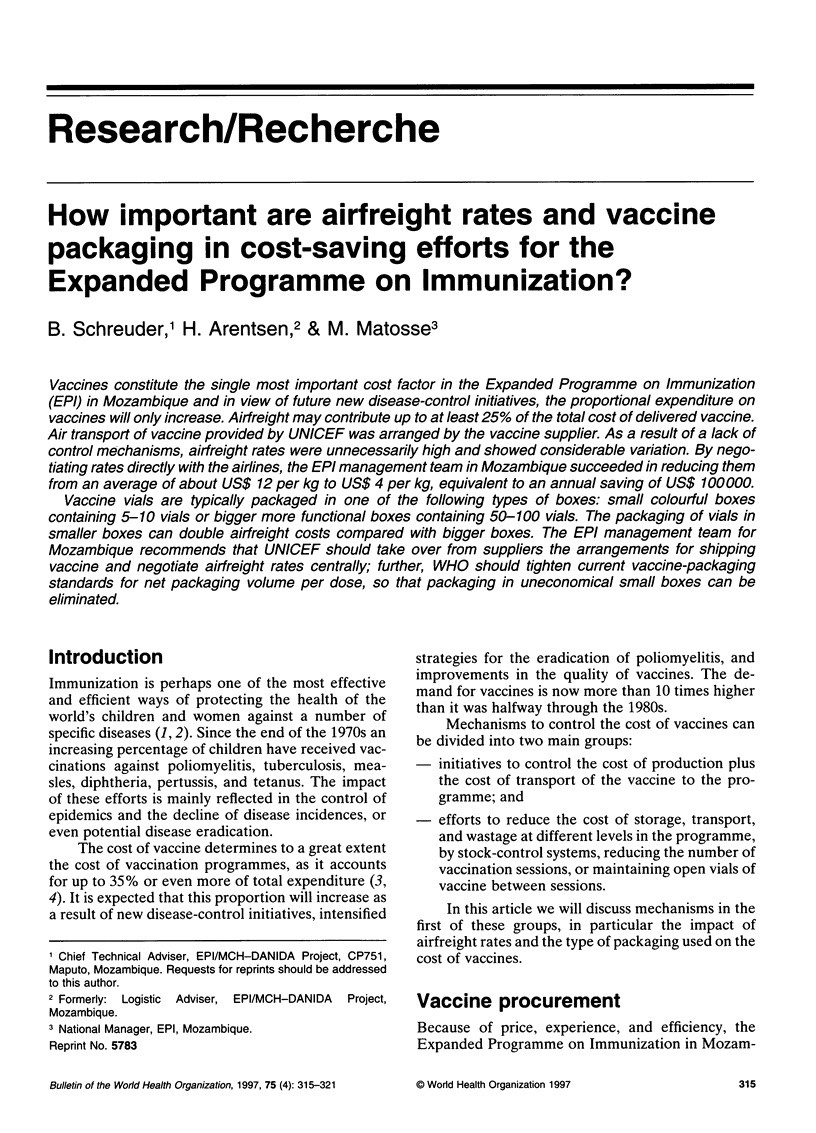
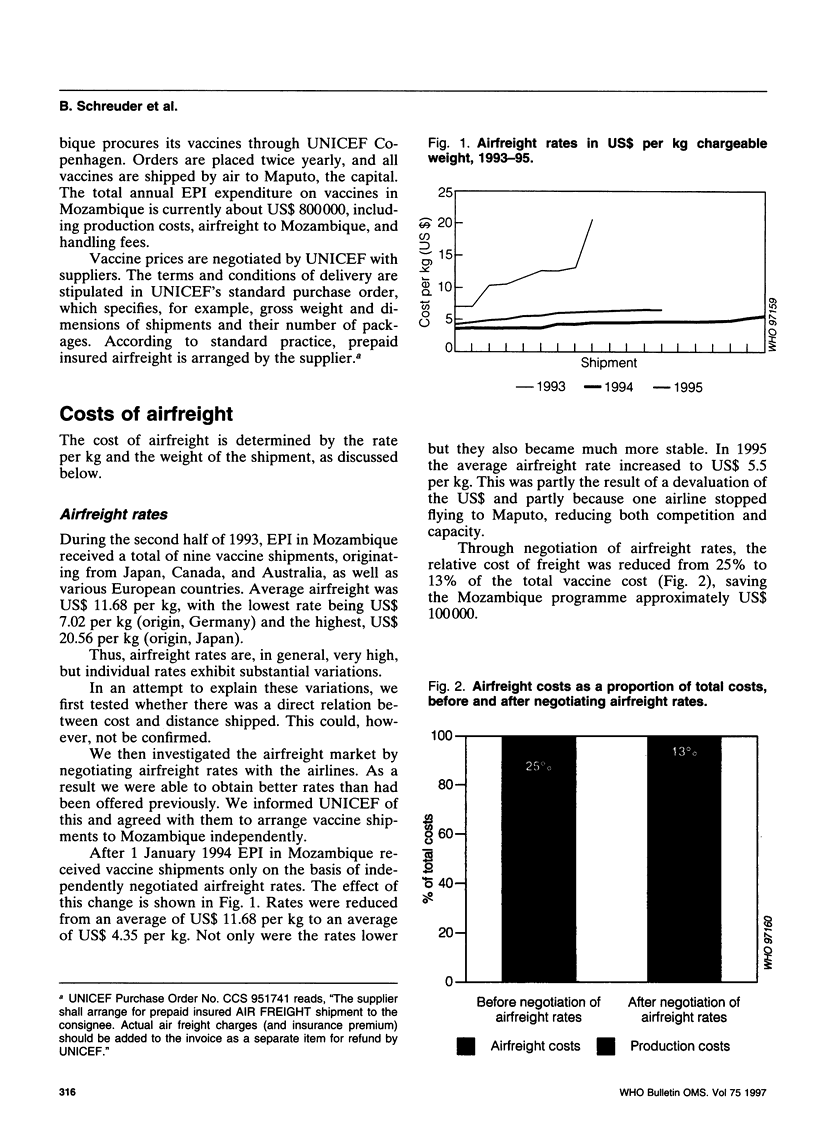

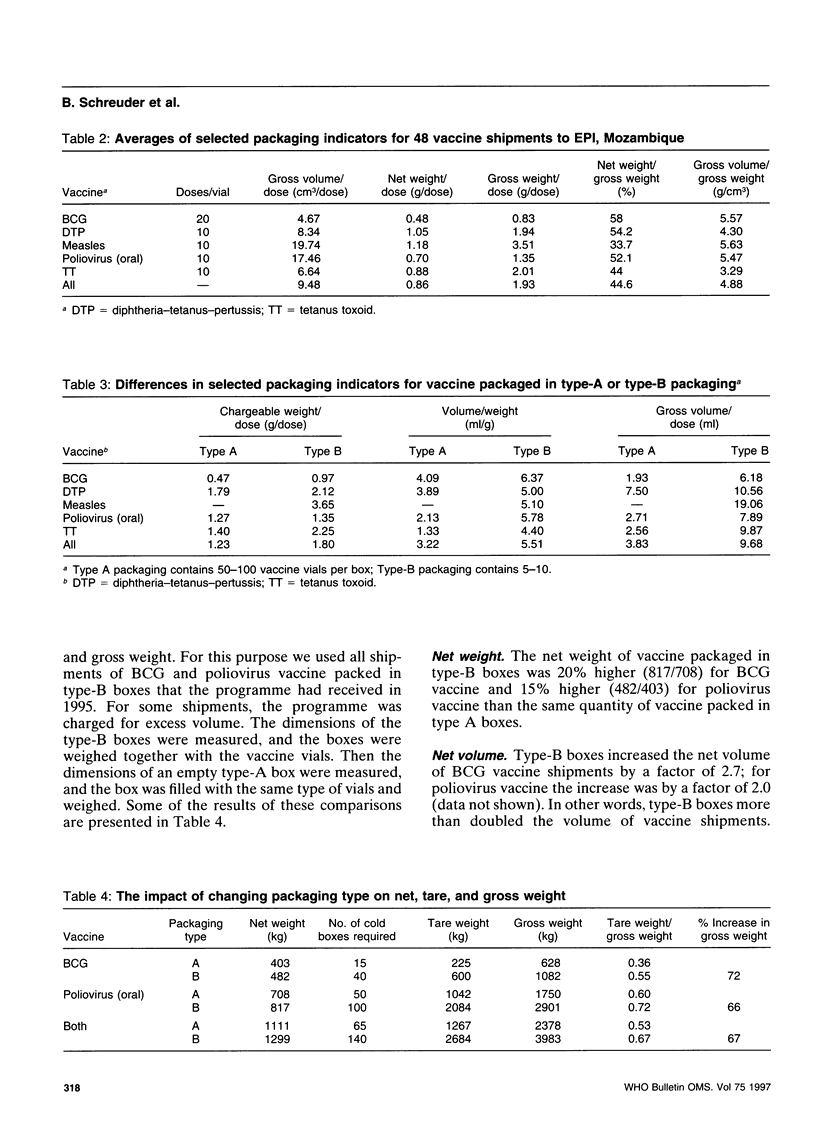
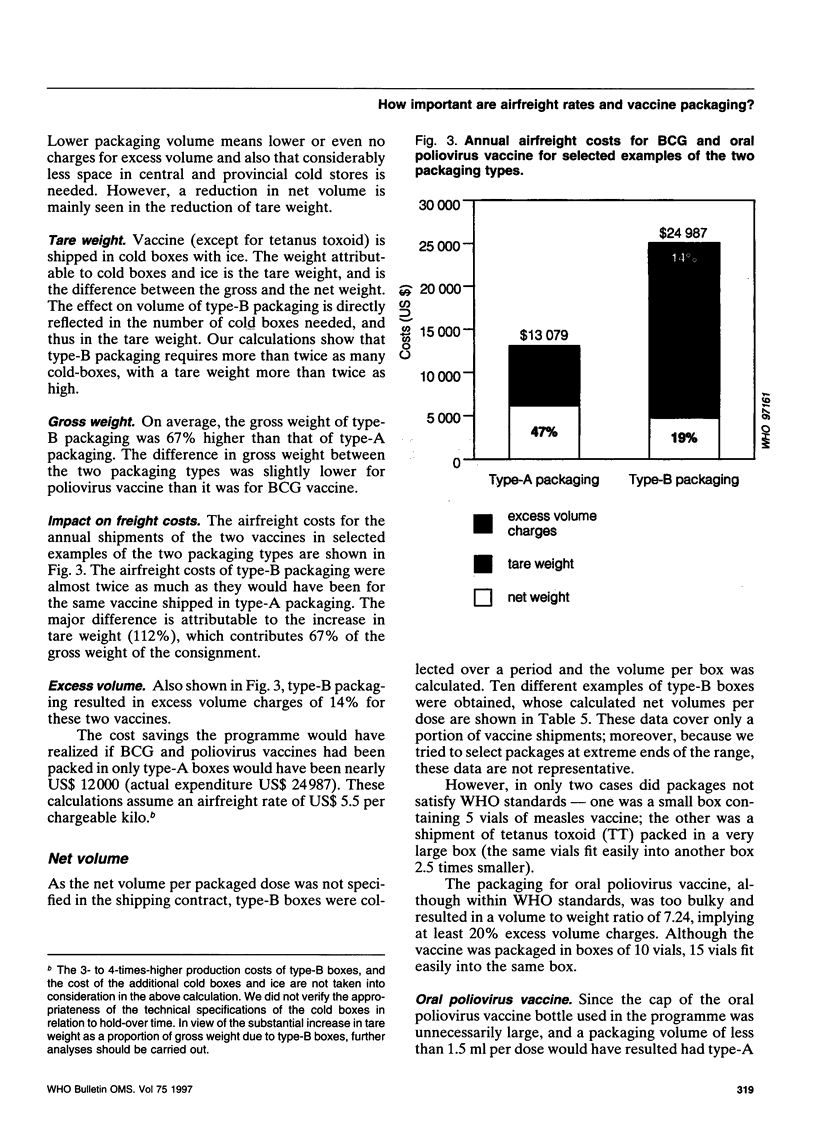
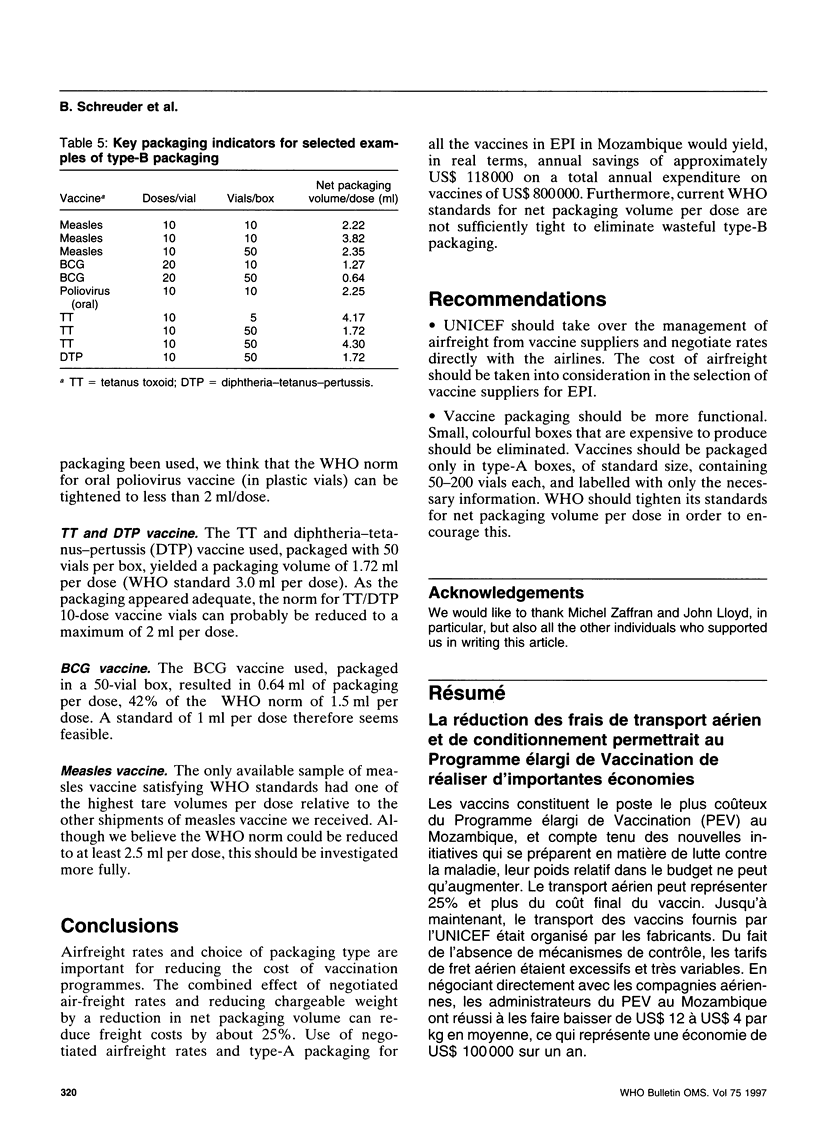
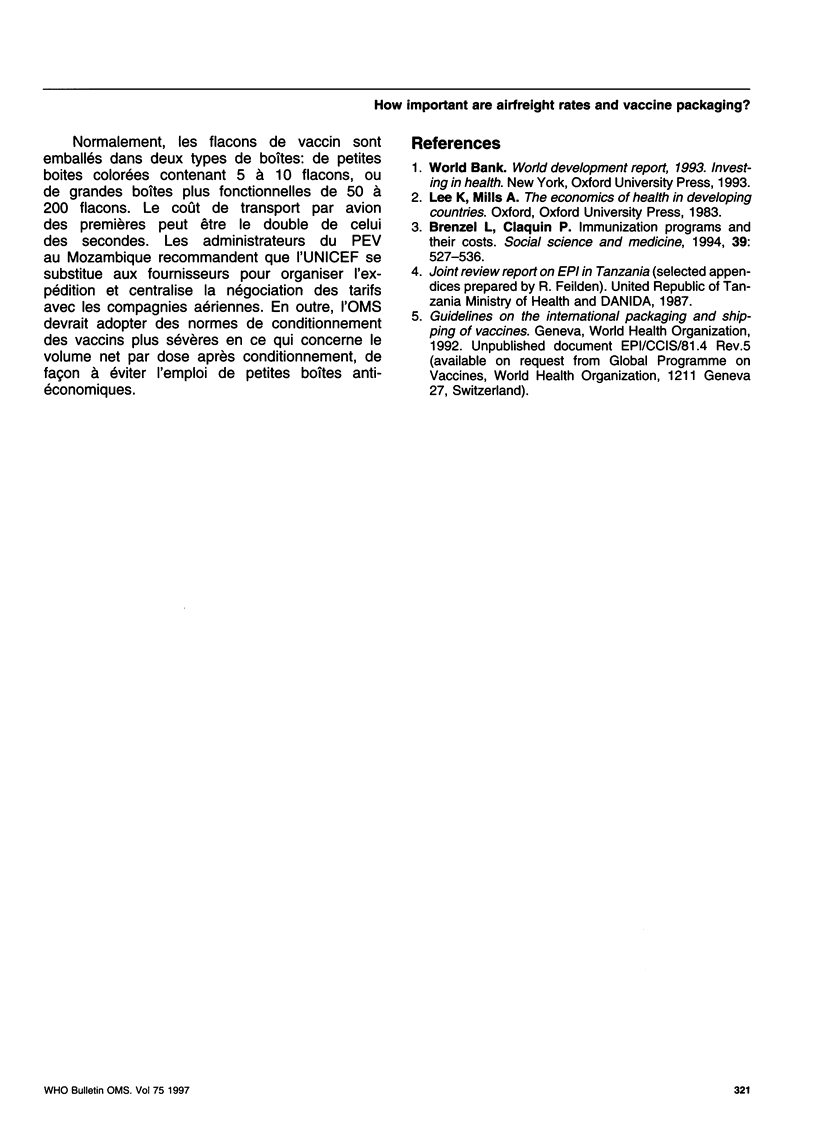
Selected References
These references are in PubMed. This may not be the complete list of references from this article.
- Brenzel L., Claquin P. Immunization programs and their costs. Soc Sci Med. 1994 Aug;39(4):527–536. doi: 10.1016/0277-9536(94)90095-7. [DOI] [PubMed] [Google Scholar]


